
Are Credit Card Exchange Rates Good?
Published July 14, 2024
•
Last updated June 3, 2025
12 min read
So you have a trip coming up or trying to buy something from a foreign website and were wondering, does it make sense to buy it with your credit card? Do you get a good exchange rate, or should you use an alternative method to save more?
The answer is ...
Sometimes.
There are some credit cards that doing these foreign transactions with is more favorable than other methods, but this is not true for all credit cards!
In this post, we will go into detail about what is happening in the background when you do a foreign transaction, what the fees are, and when it makes sense to use a credit card for foreign transactions.
Currency Conversion Fees
Currency conversion fees, or exchange rate markups, are costs associated with converting transactions made in a foreign currency back to your home currency which for us living in Canada is Canadian Dollars.
These fees are not shown in a separate section of your bill. They are part of the exchange rate used by the credit card network (Visa, Mastercard, American Express) for the conversion.
The exchange rate used by credit card networks is typically close to the interbank market rate, which banks use when trading currencies with each other. However, the rate applied to credit card transactions usually includes a small markup, typically around 1%, which basically is the currency conversion fee. This markup is where the credit card networks profit from the conversion of the currencies.
It's important to note that this fee differs from foreign transaction fees and is added to any foreign transaction fees charged by the credit card issuer.
Now let's discuss crucial tip when traveling that can save you a lot of money on Currency conversion fees. When you want to pay with your credit card, they will give you a choice to pay in your home currency meaning Canadian Dollars or the local currency of the country you are traveling to.
For example, imagine you just had a lovely pasta in Italy, and they bring the credit card machine to you. You have the choice of choosing EUR or CAD. You have to go with the EUR option to save more! This is because the Dynamic Currency Conversion (DCC) process used by merchants often applies a less favorable exchange rate and may include additional fees.
So now that we have a good understanding of what currency Conversion fees are let's see how good they are for credit cards and Are credit card exchange rates good, and whether it is logical to use them when traveling?
Are Credit Card Network Currency Exchange Rates Fair?
When it comes to the fairness of network currency exchange rates, the consensus among the sources is that credit card companies typically offer the best consumer rates compared to ATMs or cash exchanges.
This is because the currency conversion rate applied by credit card networks meaning Visa, Mastercard, and American Express, is very close to the interbank rate, the rate banks use when trading currencies with each other.
If you want to check the numbers, you can use the Visa Exchange rate calculator if you have a Visa Credit card or the Mastercard Currency converter calculator if you have a MasterCard. American Express does not officially announce their exchange rate, but they are also very similar to what is offered by Visa and Mastercard.
Out of these networks, Mastercard usually has the best rate based on a study by NerdWallet, and American Express has the worst exchange rate, but the differences are so small that it's probably not worth your time trying to use one network over the other to get a better rate.
Comparison with other exchange places
1. Exchanges rate of Bank of Canada
The Bank of Canada provides official exchange rates that are used as benchmarks. However, the rates offered by credit card networks are usually slightly higher than these official rates. This is because of the small markup that is applied to the interbank rate, which effectively serves as the currency conversion fee.
Although there is a small markup, credit card exchange rates are still great. That's because the Bank of Canada number is a benchmark, and it's challenging for you as a consumer to find a place to exchange your money with the benchmark rate.
2. Exchange Rates vs Major Canadian Banks
Major Canadian banks also offer currency exchange services, but their rates are worse than what credit card networks provide. Banks add a considerable markup to the interbank rate to cover costs and generate profit.
3. Exchange rates vs. Currency exchange Websites like Wise
There has been a rise in currency exchange websites where you can convert your money to other currencies online. One of the most famous ones is Wise.
Currency exchange websites like Wise offer competitive rates that are often better than those banks offer.
Now let's say you get their debit card that automatically exchanges currency in the background. Would that beat what the credit cards offer?
Well, most of the time, No!
These websites also need to add a markup to the interbank rate to cover their costs and generate profit.
In conclusion, while the currency conversion rates offered by credit card networks are not exactly the same as the interbank rate, they are generally fair and competitive compared to other exchange places.
So should you always use your credit card for all foreign transactions?
Definitely No!
It depends on the credit card you use, which we will discuss further down. Currency Exchange rates are not the only fee you pay when using a credit card aboard. There is also a considerable fee that you have to look out for called Foreign Transaction Fees.
Foreign Transaction Fees
Foreign Transaction Fees are charges that credit card issuers (For example, if you got your card from a bank, that bank is your issuer) and payment networks add to transactions outside the cardholder's home country.
These fees are typically a percentage of the amount of each foreign purchase and are in addition to any foreign currency conversion fees that might be added to the transaction.
In Canada, foreign transaction fees can range from 1.5% to 3% of the purchase price. The most typical foreign transaction fee is 2.5%. These fees are charged by the credit card issuer and are usually added to the transaction when the purchase is converted from foreign currency to Canadian dollars.
While foreign transaction Fees are added to the purchases you are doing abroad, there are some other cases that these fees also apply.
1. International ATMs
Withdrawing local currency cash from international ATMs can also incur foreign transaction fees. These fees can come from both the ATM operator and the credit card issuer. In addition to the foreign transaction fee, a cash advance fee may also apply if a credit card is used.
2. Online Retailers
Purchases from online retailers outside Canada can also be subject to foreign transaction fees. Even if the price is displayed in Canadian dollars, the foreign transaction fee can still apply if the retailer processes the transaction outside of Canada.
3. Processed Through Foreign Banks
So, imagine you're in Canada, and you want to buy something from a website that's based in the United States. Even if the prices you see are in Canadian dollars and you pay in Canadian dollars, your credit card company might still charge you an extra foreign transaction fee. This is because the payment is likely handled by a bank in the U.S. since the website is from there.
In Summary, the foreign transaction fee is a considerable markup on your purchases, and a 2.5% markup would make it less favorable compared to other methods like exchanging money with currency exchange websites, etc.
But there are ways to avoid this fee, and by avoiding this fee, you only have to pay the small currency exchange fee that is more favorable than the other methods previously mentioned making credit cards one of the best methods of doing transactions abroad, which we will cover in one of the sections below.
Can I Get Charged for Both Types of Fees at Once?
Yes, it is possible to be charged both foreign and currency conversion fees when using a credit card abroad. These fees are separate and can both apply to the same transaction.
Foreign transaction fees are charged by your credit card issuer and are usually a percentage of the amount of each foreign purchase. This fee is charged for the convenience of converting foreign currency to your home currency, in this case, Canadian dollars. Currency conversion fees, on the other hand, are charged by the payment network (Visa, Mastercard, etc.) and are included in the exchange rate used for the transaction. These fees are often less transparent as they are not listed separately on your credit card statement but are instead part of the exchange rate applied to the transaction.
In Canada, many credit cards charge both of these fees. For example, according to NerdWallet, most Canadian credit cards charge a foreign transaction fee of 2.5%. The currency conversion process done by Visa or Mastercard also includes a fee, typically around 1%. However, not all credit cards charge these fees. Some credit cards, often marketed as "travel" or "no foreign transaction fee" cards, waive the foreign transaction fee. But even these cards may still apply a currency conversion fee as part of the exchange rate.
Now let's ask this question. Are exchange rates good for credit cards that waive the foreign transaction fee?
YES!
In these cases, you have to pay only the currency exchange fee, which is the best you can find as a consumer. The rate is typically better than the banks, currency exchange websites, etc.
How To Avoid Foreign Transaction Fees
1. Apply for a Credit Card That Has No Foreign Transaction Fees
Many credit cards charge a foreign transaction fee for purchases made outside your home country. However, there are cards available that do not charge these fees.
These cards are very limited in Canada, and you only have very few options to choose from.
So let's explore a few notable credit card options:
As of today, there is only one card with no annual fee that provides the benefit of no foreign transaction fees.
go to Home Trust's website
Welcome Bonus
N/A
Rewards Rate
0% - 1%
Annual Fee
$0
Interest Rates
21.99% / 21.99%"
The Home Trust Visa card is the only no-annual-fee credit card in Canada that offers no foreign transaction fees, which is a significant benefit for frequent travelers. The big catch is that you don't earn any rewards on foreign purchases, so if you have a credit card that gives you a cashback rate close to 2.5%, it might not be worth the hassle to get this card. Other than this benefit, there are no compelling reasons to use this card as your primary credit card.
Pros
- The only No Annual fee Credit Card in Canada that offers No Foreign Transaction Fees
Cons
- Rewards are very average
- No Extended Warranty benefit on this card
Rewards
- 1% cashback on all eligible purchases.
- Foreign transactions don't receive cashback!
Insurance
Coverage
Purchase Protection
Up to 90 days
Benefits
Details
No Foreign Transaction Fees
Eligibility
Credit Score
FairAnnual Income
N/A
While this card has this benefit, it doesn't offer much more in terms of rewards, and customers have reported a lack of good support from the credit card issuer.
In that case, you can look at other credit cards in Canada that offer no foreign transaction fees but come with an annual fee.
There is another financial institution that offers the no foreign transaction fee benefit on some of its credit cards, which is Scotiabank.
One of the cards offered by Scotiabank is the Scotiabank Gold, which is one of the best credit cards in Canada in terms of both benefits and rewards, and is worth considering.
Our choice for: Great rewards, travel benefits and no FX fees
go to Scotiabank's website
Welcome Bonus*
Up to 50,000 Scene+ points ($500 value)
Rewards Rate*
1x - 6x Scene+ points
Annual Fee*
$120 $0
Interest Rates
20.99% / 22.99%
The Scotiabank Gold American Express® Card is one of our favorite cards. It has a very solid rewards program, earning one of the highest rewards among all credit cards in Canada. In addition, it offers comprehensive travel benefits, including the rare and valuable no foreign transaction fee benefit, making it a great and balanced credit card in terms of both rewards and benefits. The first-year annual fee waiver is the cherry on top, providing even greater value to cardholders.

Pros
- No foreign transaction fee saves you 2.5% on all non-CAD purchases.
- Rewards cover all high-spending categories, including food, groceries, entertainment, and gas.
- Comprehensive coverage of all travel insurance.
Cons
- The card network is American Express, which might not be widely accepted in some countries, making it a bit harder to use the no foreign transaction fee benefit.
- Having a lounge pass would have made this card even more perfect, but there is access to a discount code for lounge access pass purchases.
Rewards*
- Earn 6x Scene+ points on every $1 you spend at Sobeys, Safeway, Freshco, Foodland and more*
- Earn 5x Scene+ points for every $1 you spend on dining, food delivery and other eligible grocery stores. Includes popular food delivery and food subscriptions.*
- Earn 5x Scene+ points for every $1 you spend in Canada eligible entertainment purposes. Includes movies, theatre and ticket agencies stores.*
- Earn 3x Scene+ points for every $1 CAD you spend in Canada on eligible gas and daily transit options. Includes rideshares, buses, subway, taxis and more*
- Earn 3x Scene+ points for every $1 CAD you spend in Canada on eligible select streaming services*
- Plus earn 1 Scene+ point for every $1 spent on all other eligible everyday purchases
- Earn additional benefits + up to 4x Scene+ points for every dollar you spend on hotel bookings, car rentals, and things to do with Scene+ Travel, Powered by Expedia
Insurance*
Coverage*
Emergency Out of province Medical
$1M, Up to 25 daysEmergency Medical Over 65
$1M, Up to 3 daysTrip Cancellation
$1500/person, $10000/tripTrip Interruption
$1500/person, $10,000/tripLost or Stolen Baggage
$500/person, $1000/tripBaggage Delay
$500/person, $1,000/trip After 4 hoursFlight Delay
$500/personTravel Accident
$500K/person, $1M/occurrenceCar Rental Damage & Theft
$65K up to 48 daysHotel Burglary Insurance
$1000/occurrenceMobile Device Insurance
$1,000Purchase Protection
90 daysExtended Warranty
Up to 1 year
Benefits*
Details*
No Foreign Transaction Fees
Avoid the 2.5% foreign transaction fees incurred when spending in non $CAD
American Express® Experiences
Concierge Services
Discount
Discount on PriorityPass Membership
Eligibility*
Credit Score
GoodAnnual Income
$12,000 personal or $12,000 household
Another one is the Scotiabank Passport, which is a Visa card, more widely accepted internationally compared to American Express network which you can go for aswell which comes with tons of benefits.
Our choice for: Premium Travel Perks and Lounge Access
go to Scotiabank's website
Welcome Bonus*
Up to 45,000 Scene+ points ($450 value)
Rewards Rate*
1x - 3x Points
Annual Fee*
$150
Interest Rates
20.99% / 22.99%
The Scotiabank Passport Visa Infinite is a strong choice for frequent travelers, especially those who value flexibility and premium perks. It stands out with its rare benefit of no foreign transaction fees, making international purchases more cost-effective. Additionally, the card offers a valuable blend of travel perks, including airport lounge access, comprehensive insurance coverage, and flexible rewards, making it an ideal companion for those who frequently travel abroad and want to avoid extra fees while enjoying premium benefits.

Pros
- High Rewards on Select Purchases: Earn up to 3 points per $1 spent on select categories.
- No Foreign Transaction Fees: Shop abroad without additional charges.
- Comprehensive Insurance: Includes 11 types of insurance coverage.
- Airport Lounge Access: Enjoy up to 6 airport lounge passes per year through the Visa Airport Companion program.
Cons
- High Income Requirements: Requires $60,000 personal or $100,000 household income.
- Lower Overall Rewards: Rewards potential is lower compared to premium credit cards.
- High Annual Fee: Comes with a significant annual fee.
- Average Insurance Coverage: Insurance benefits are standard, not exceptional.
- Mediocre Earnings Potential: The card’s rewards structure might not offer the highest returns for every spender.
Rewards*
- Earn 3x Scene+™ points on every $1 you spend at Sobeys, Safeway, IGA, Foodland and participating Co-ops and moreScotiabank Passport Visa Infinite Review: Benefits & Lounge Access†
- Earn 2x Scene+™ points for every $1 you spend on other eligible grocery stores, dining, eligible entertainment purchases and eligible daily transit options(including rideshares, buses, subways taxis and more)†
- Plus earn 1 Scene+™ point for every $1 spent on all other eligible everyday purchases†
- Earn additional benefits + up to 4x Scene+ points for every dollar you spend on hotel bookings, car rentals, and things to do with Scene+ Travel, Powered by Expedia†
Insurance*
Coverage*
Emergency Out of province Medical
$2M/insured up to 25 daysEmergency Medical Over 65
$2M/insured up to 3 daysTrip Cancellation
$1,500/person, $10,000/tripTrip Interruption
$2,500/person, $10,000/tripFlight Delay
$500/person after 4 hoursLost or Stolen Baggage
$1000Baggage Delay
$1000Travel Accident
$500,000/insured, $1M combinedCar Rental Damage & Theft
$65,000 up to 48 daysHotel Burglary Insurance
$1,000Purchase Protection
90 daysExtended Warranty
1 year
Benefits*
Details*
No Foreign Transaction Fees
Avoid the usual 2.5% forex fees on your purchases when you travel outside of CanadaAirport Lounge - Dragon Pass
6 Free complimentary visitsStatus lift
Avis® Preferred Plus membershipConcierge Services
Visa Infinite Exclusive Benefits
Eligibility*
Credit Score
GoodAnnual Income
$60,000 personal or $100,000 household
2. U.S. dollar credit cards and U.S. dollar bank accounts
If you frequently travel to the United States or purchase U.S. dollars, consider getting a U.S. dollar credit card or opening a U.S. dollar bank account. This can help you avoid foreign transaction fees and unfavorable exchange rates. In Canada, several banks offer U.S. dollar accounts, including RBC, TD, and Scotiabank.
FAQ
1. Is Mastercard exchange rate fair?
Yes, Mastercard's exchange rate is generally considered fair.
Mastercard's rates were found to be close to the mid-market rate, which is the rate banks and transfer services use when they trade among themselves. However, the exact rate you get can depend on the specific card you have and the bank that issued it.
Is the Visa exchange rate fair?
Yes, Visa's exchange rate is also considered fair.
Similar to Mastercard, Visa's rates were found to be close to the mid-market rate. However, Thin Margin's analysis showed that Visa's rates were slightly less favorable than Mastercard's over a one-year period. Again, the exact rate can depend on your specific card and issuing bank.
Is American Express's exchange rate fair?
Yes, American Express's exchange rates are generally considered fair.
However, it's important to note that American Express's rates can sometimes be less favorable than those of Visa and Mastercard because they use their own method to calculate their exchange rate, which is different from the mid-market method Visa and Mastercard use.
Is the exchange rate better with cards or cash?
Most of the time, using a credit card is better than exchanging cash. This is because credit card companies have access to better rates than individual consumers.
But you need to be wary of the foreign exchange fees added on top of the currency exchange rate. The typical foreign exchange fee in Canada is 2.5% which might make other exchange rates better if you make the comparison.
To avoid that fee, use credit cards that waive the foreign exchange fee. In those cases, those cards are very much more favorable than all the other methods.
So, Are Credit Card Exchange Rates Good?
The answer to the question "Are credit card exchange rates good" is yes.
Their rate is better than what you can get at ATMs, banks, and currency exchange websites most of the time. This is because the rate Visa, MasterCard, and American Express apply are very close to the interbank rate, which is the rate banks use when trading currencies with each other. Studies have shown that the markup the credit card networks apply to the currency exchange rate is 1% which is a very small markup compared to the other methods.
However, the currency exchange fee is not the only fee that is added when doing foreign transactions. Most card issuers have around 2.5% foreign transaction fee, which is on top of the exchange fee. This 2.5% can make doing foreign transactions less favorable compared to bank exchange or currency exchange websites. But there are two ways to avoid it:
- Apply for a Credit Card That Has No Foreign Transaction Fees
- Get a U.S. dollar credit card and U.S. dollar bank accounts
By using these methods, the exchange rate you get will probably be the best that is available to you as a consumer.
Trending Offers
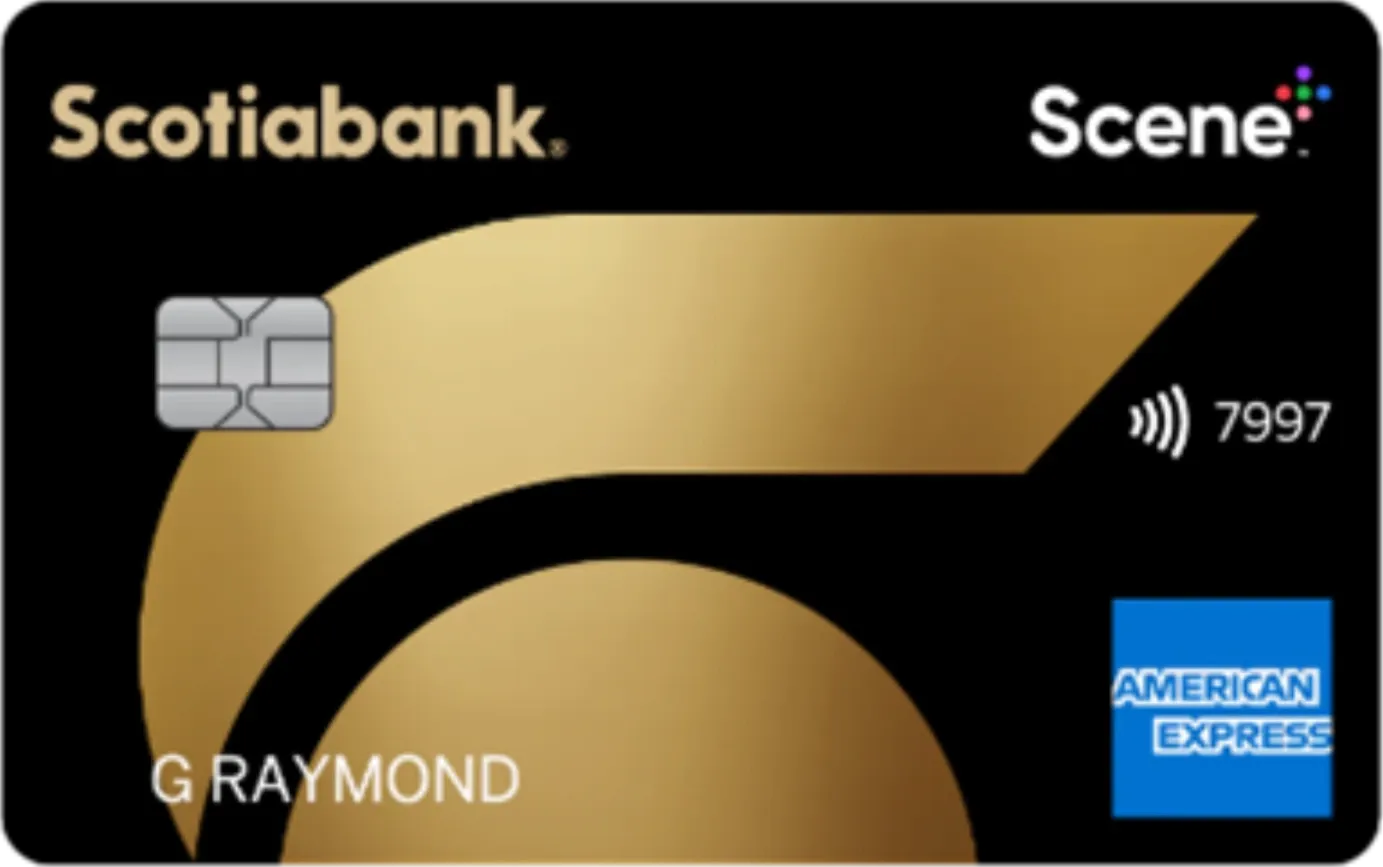
Scotiabank Gold American Express® Card
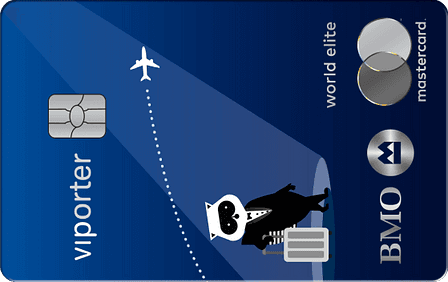
BMO VIPorter World Elite Mastercard®∗
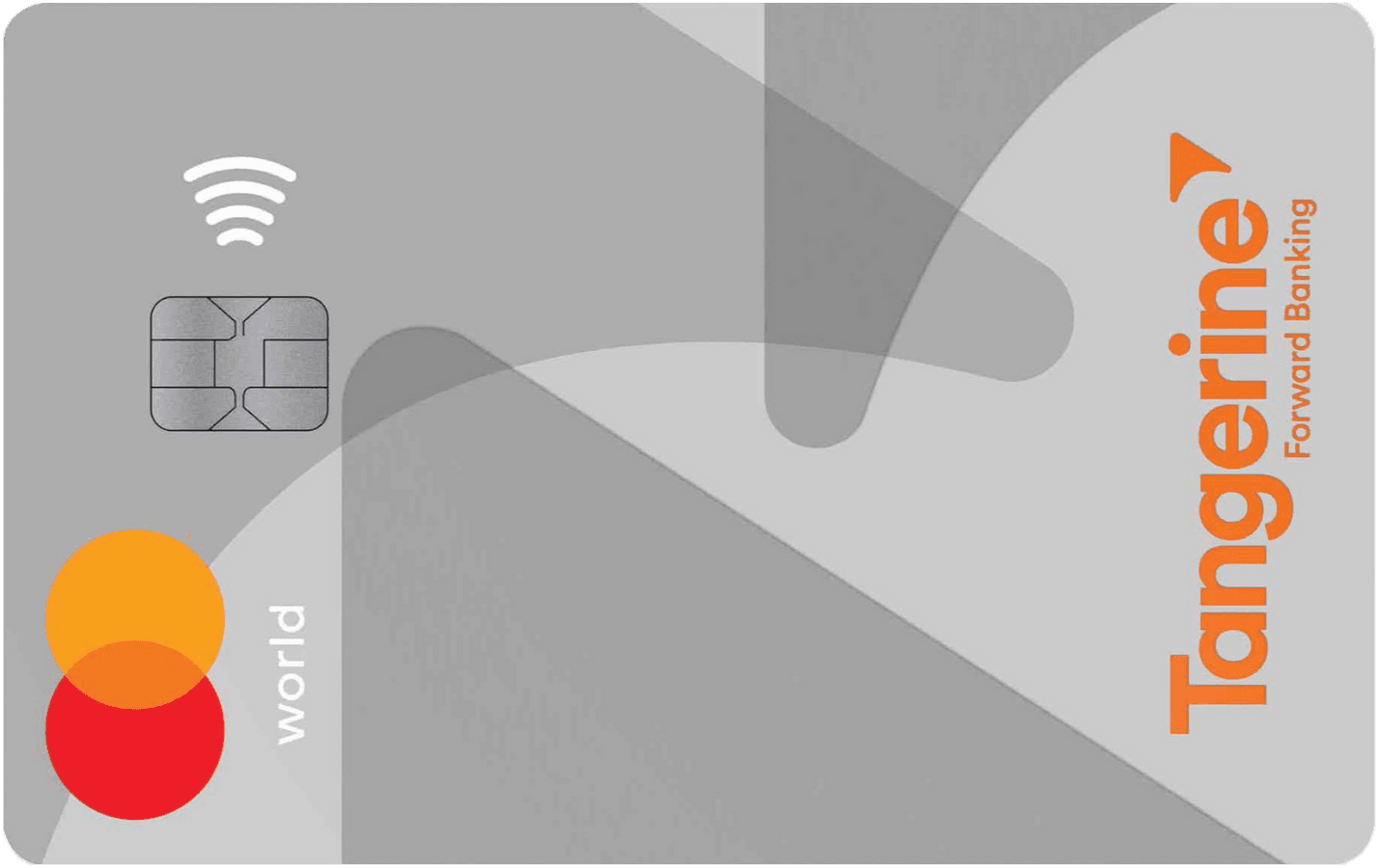
Tangerine World Mastercard
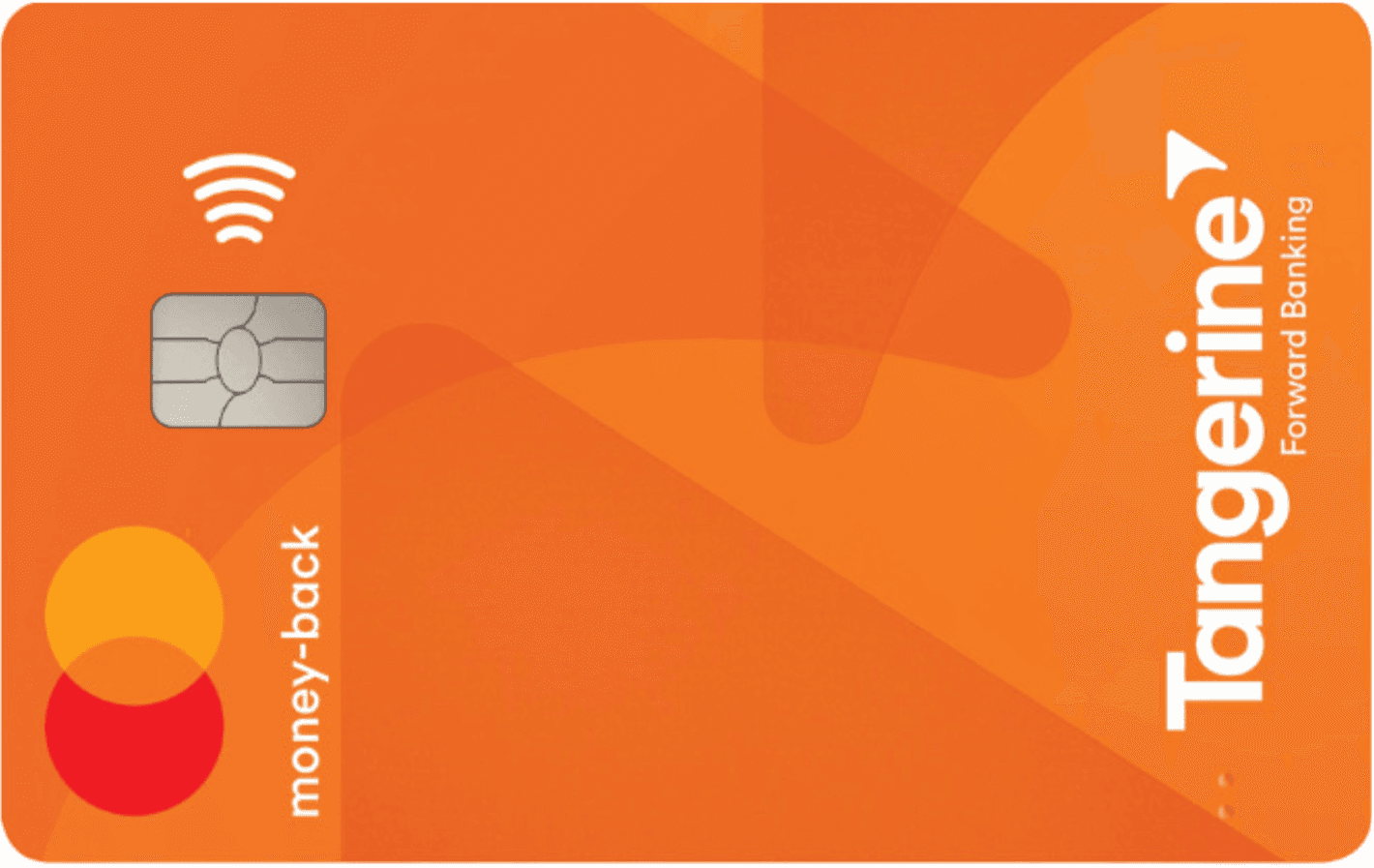
Tangerine Money-Back Credit Card
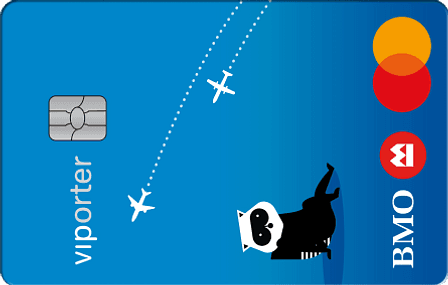
BMO VIPorter Mastercard®∗

Scotiabank Preferred Package Chequing for Student and Youths


